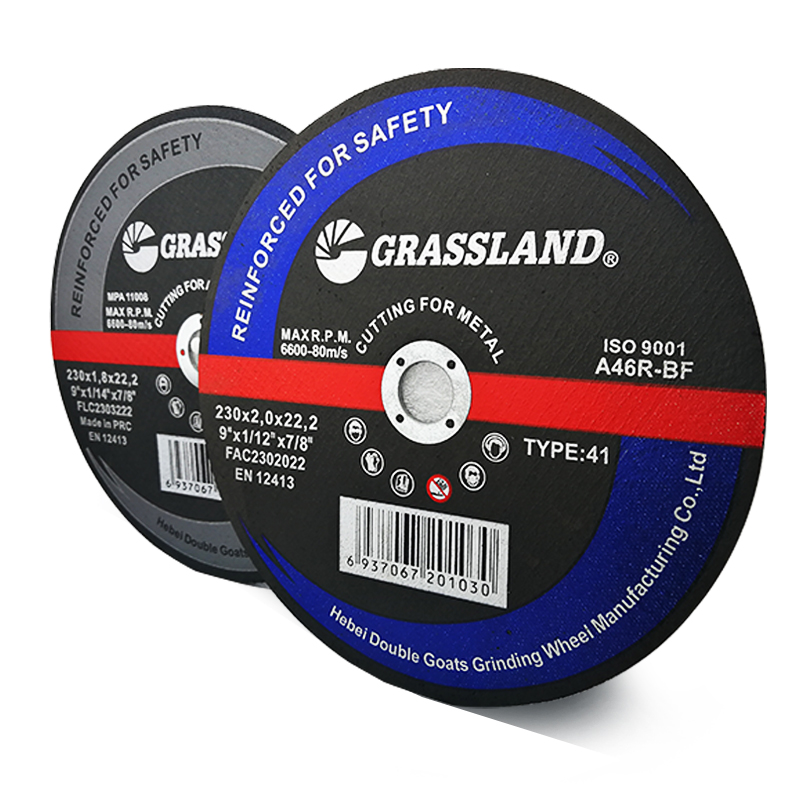Different Types of Abrasives Used in Grinding Wheels
Grinding wheels are essential tools in various industrial and manufacturing processes. They consist of a circular disc made of abrasive materials and serve multiple functions, including grinding, cutting, and polishing various materials. The efficiency and effectiveness of a grinding wheel largely depend on the type of abrasives used. Abrasives are typically categorized into two primary groups bonded abrasives and coated abrasives. This article will explore the different types of abrasives used in grinding wheels, their characteristics, and their applications.
1. Bonded Abrasives
Bonded abrasives are materials that are held together by a bonding agent to form a solid structure. These abrasives are commonly used in grinding wheels because they provide durability and strength. The most common bonded abrasives include
a. Aluminum Oxide Aluminum oxide is one of the most widely used abrasives in the manufacture of grinding wheels. It is known for its toughness and resistance to wear, making it ideal for grinding ferrous metals. Its availability in various forms, such as white aluminum oxide and brown aluminum oxide, allows for a range of applications from rough grinding to finishing processes.
b. Silicon Carbide Silicon carbide is another prominent abrasive that excels in grinding hard materials such as ceramics, glass, and non-ferrous metals. Its sharp edges and high hardness allow for effective cutting and grinding. Silicon carbide wheels are often utilized in applications where a smooth finish is required, such as in grinding delicate or brittle materials.
c. Diamond Diamond abrasives are the hardest known material and are primarily used in grinding wheels designed for precision grinding applications. They are especially useful for cutting hard materials like carbide, glass, ceramics, and stones. Diamond grinding wheels have a longer lifespan and can provide superior performance in demanding conditions, making them indispensable in industries such as aerospace and automotive.
d. CBN (Cubic Boron Nitride) CBN is the second hardest material and is used in grinding applications similar to those of diamond, particularly for grinding ferrous materials. CBN abrasive wheels are highly effective in high-speed grinding operations and are known for their excellent thermal conductivity. This feature allows them to dissipate heat quickly, reducing gouging and improving finish quality.
different types of abrasives used in grinding wheels

2. Coated Abrasives
Coated abrasives consist of abrasive grains attached to flexible substrates, such as paper or cloth. They are often used for sanding, finishing, and polishing applications but can also be adapted for grinding purposes. Common types of coated abrasives include
a. Sandpaper Sandpaper is a ubiquitous form of coated abrasive that is used for a wide range of smoothing and finishing tasks. It is available in various grits, allowing users to select the appropriate level of abrasiveness for their specific needs. Sandpaper is commonly used in woodworking, metalworking, and automotive refinishing.
b. Flap Discs Flap discs are made by attaching multiple layers of coated abrasives to a central hub. They provide a unique combination of grinding and finishing capabilities, making them suitable for shaping and polishing metal surfaces. Flap discs offer flexibility and control, which makes them popular in fabrication and welding industries.
c. Belts Abrasive belts are used in belt sanders and grinding machines. They come in various sizes and compositions, providing versatility for different applications, from material removal to precision finishing. These belts are advantageous for their ability to cover significant surface areas quickly and efficiently.
Conclusion
In summary, the type of abrasive used in grinding wheels is crucial for determining the overall performance of the grinding process. Each abrasive material has its own unique characteristics, making them suitable for various applications. Understanding the differences between bonded and coated abrasives, along with the specific materials such as aluminum oxide, silicon carbide, diamond, and CBN, can help in selecting the right grinding wheel for any job. Quality abrasive wheels not only improve precision and efficiency but also enhance the safety and effectiveness of grinding tasks in diverse industrial settings.
Post time:Oct - 17 - 2024

















